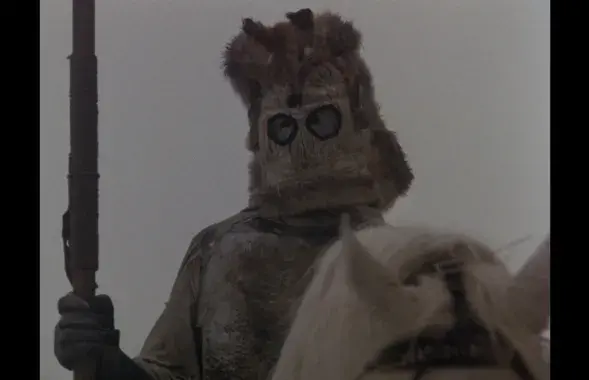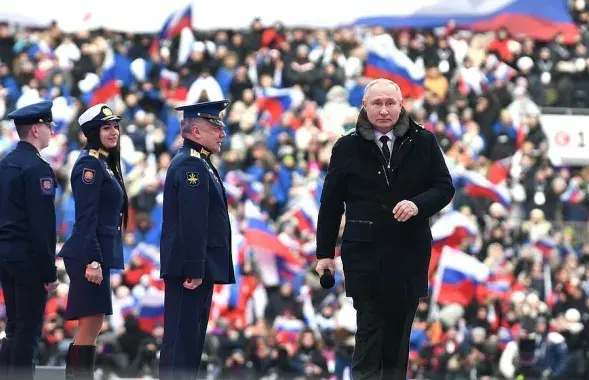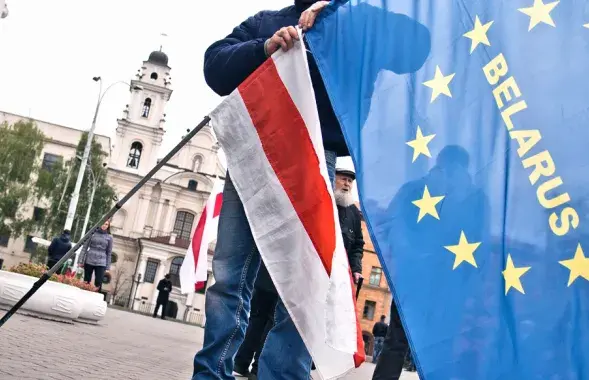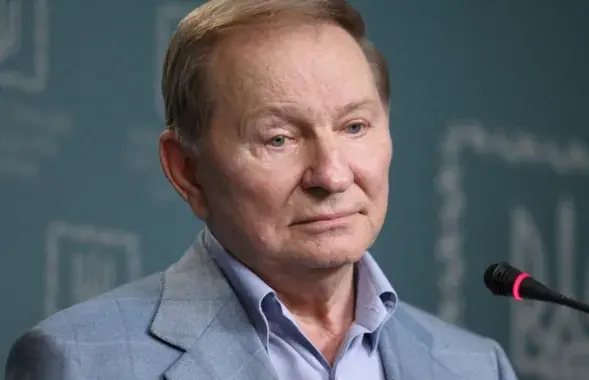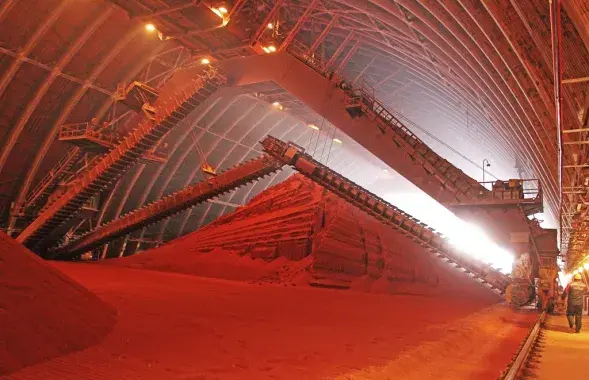Zaika: Lukashenka costs Belarusians $4.5 bln
Economist Leanid Zaika says Belarus and Russia have already been at economic war. Syarhei Chaly reckons that if Lukshenka gets stuck in this war, he will thus show his weakness. Former Russain minister Yevgeniy Yasin is confident the Kremlin will not stop till Belarus recognizes Abkhazia and South Ossetia. The screening of Godfather-3 along with the absence of clear signs from both Russia and Belarus to halt the information war have given birth to concerns that it can transform into an economic war. The European Radio for Belarus talks to pundits to find out how this can threaten economy in our countries.
In the view of economist Leanid Zaika, the economic war between our countries has already been underway. To be more exact, the Kremlin has launched an economic war against Alyaksandr Lukashenka personally.
Leanid Zaika: The Kremlin has promised new tariffs for natural gas. The Kremlin has removed cheap crude oil. According to my estimates, this amounts to approximately $4.5 billion. I call this a tax for Alexander Ryhoravich [Lukashenka]. The Belarusian electorate should have known ahead of elections that Alexander Lukashenka costs us $4.5 billion. He is a very expensive president.
If, in respond to information attacks from Russia, Belarus decides to punish its neighbor by, for instance, blocking the transit to Kaliningrad, it will be suicidal, reckons Zaika. Actually, the Kremlin counts on that, says the economist.
Leanid Zaika: There are clever and cynical people in the Kremlin. They understand very well that a wounded Belarusian president who is on the defensive will take actions, leading eventually to the deterioration of the condition of the whole population. The Kremlin is putting stake on that and on the deterioration of the condition of many groups around Lukashenka. As soon as the commander-in-chief of the Belarusian economy begins hampering the transit of goods, electricity to Kaliningrad, etc., he will be faced with totally conscious actions from the Russian political elite.
For instance, crude oil supplies to Belarusian refineries could be halted, says Zaika. He is also recalling the case of journalist Pavel Sheremet who was freed from jail precisely after the same reaction of the Kremlin to the detention of the Russian television channel ORT's correspondent. Besides, there is the so called dairy market. Russia could take these measures, because Putin has ordered special services to remove Lukashenka and they are fulfilling his order.
Economist Syarhei Chaly agrees that en economic war has been underway for over one year. He recalls (Russian finance minister) Andrei Kudrin's statements and 'milk wars' and the negotiations over oil and the mini gas war. The information war, he says, is a logical continuation of all those actions. Now, the Kremlin counts on Belarus getting stuck in this economic war.
Syarhei Chaly: Russia counts on this greatly. Russia hopes to provoke Belarus into material actions. So far, there has been an exchange of virtual attacks that are not really affecting anyone. What more important is who will be the first to resort to something more serious in this war and will thus show its weakness. Russia counts on it. I think Belarusian authorities are doing the right thing by not really reacting to all this.
Chaly also thinks politics and Kremlin's desire to influence on the situation in Belarus ahead of presidential elections stand behind the recent development. But, the Kremlin is not succeeding.
Former Russian economy minister Evgeniy Yasin, who currently works as a research fellow with the High School of Economics, reckons the war has not been between Russia and Belarus. The war is exclusively between Putin and Lukashenka. In this war, they are using the arguments that are not acceptable in the international practice. But, if the Belarusian leader does not hold out and begins applying economic sanctions against Russia, it will only be worse to Belarus and Lukashenka personally.
Evgeniy Yasin: This will lead to retaliation. The number of films will be increased, while the opportunities to appropriate the income from the transit of Russian goods will be reduced. Tightening the nuts will not be beneficial to either side.
Yasin maintains the Russian side will not stop till Lukashenka orders to recognize the independence of Abkhazia and South Ossetia.
Evgeniy Yasin: He doesn't want to recognize Abkhazia and South Ossetia as independent nations. He doesn't feel like.! If I were him, I wouldn't feel like, either. But, since you have traded such a commodity as the Russian-Belarusian friendship, you should make a choice. Many people in the Kremlin have taken a firm stance over this issue.
The former minister hopes that Putin and Lukashenka would be smart to stop aggravating the situation. But, there is little confidence in it, as anything could be expected from our leaders.
In the view of economist Leanid Zaika, the economic war between our countries has already been underway. To be more exact, the Kremlin has launched an economic war against Alyaksandr Lukashenka personally.
Leanid Zaika: The Kremlin has promised new tariffs for natural gas. The Kremlin has removed cheap crude oil. According to my estimates, this amounts to approximately $4.5 billion. I call this a tax for Alexander Ryhoravich [Lukashenka]. The Belarusian electorate should have known ahead of elections that Alexander Lukashenka costs us $4.5 billion. He is a very expensive president.
If, in respond to information attacks from Russia, Belarus decides to punish its neighbor by, for instance, blocking the transit to Kaliningrad, it will be suicidal, reckons Zaika. Actually, the Kremlin counts on that, says the economist.
Leanid Zaika: There are clever and cynical people in the Kremlin. They understand very well that a wounded Belarusian president who is on the defensive will take actions, leading eventually to the deterioration of the condition of the whole population. The Kremlin is putting stake on that and on the deterioration of the condition of many groups around Lukashenka. As soon as the commander-in-chief of the Belarusian economy begins hampering the transit of goods, electricity to Kaliningrad, etc., he will be faced with totally conscious actions from the Russian political elite.
For instance, crude oil supplies to Belarusian refineries could be halted, says Zaika. He is also recalling the case of journalist Pavel Sheremet who was freed from jail precisely after the same reaction of the Kremlin to the detention of the Russian television channel ORT's correspondent. Besides, there is the so called dairy market. Russia could take these measures, because Putin has ordered special services to remove Lukashenka and they are fulfilling his order.
Economist Syarhei Chaly agrees that en economic war has been underway for over one year. He recalls (Russian finance minister) Andrei Kudrin's statements and 'milk wars' and the negotiations over oil and the mini gas war. The information war, he says, is a logical continuation of all those actions. Now, the Kremlin counts on Belarus getting stuck in this economic war.
Syarhei Chaly: Russia counts on this greatly. Russia hopes to provoke Belarus into material actions. So far, there has been an exchange of virtual attacks that are not really affecting anyone. What more important is who will be the first to resort to something more serious in this war and will thus show its weakness. Russia counts on it. I think Belarusian authorities are doing the right thing by not really reacting to all this.
Chaly also thinks politics and Kremlin's desire to influence on the situation in Belarus ahead of presidential elections stand behind the recent development. But, the Kremlin is not succeeding.
Former Russian economy minister Evgeniy Yasin, who currently works as a research fellow with the High School of Economics, reckons the war has not been between Russia and Belarus. The war is exclusively between Putin and Lukashenka. In this war, they are using the arguments that are not acceptable in the international practice. But, if the Belarusian leader does not hold out and begins applying economic sanctions against Russia, it will only be worse to Belarus and Lukashenka personally.
Evgeniy Yasin: This will lead to retaliation. The number of films will be increased, while the opportunities to appropriate the income from the transit of Russian goods will be reduced. Tightening the nuts will not be beneficial to either side.
Yasin maintains the Russian side will not stop till Lukashenka orders to recognize the independence of Abkhazia and South Ossetia.
Evgeniy Yasin: He doesn't want to recognize Abkhazia and South Ossetia as independent nations. He doesn't feel like.! If I were him, I wouldn't feel like, either. But, since you have traded such a commodity as the Russian-Belarusian friendship, you should make a choice. Many people in the Kremlin have taken a firm stance over this issue.
The former minister hopes that Putin and Lukashenka would be smart to stop aggravating the situation. But, there is little confidence in it, as anything could be expected from our leaders.


